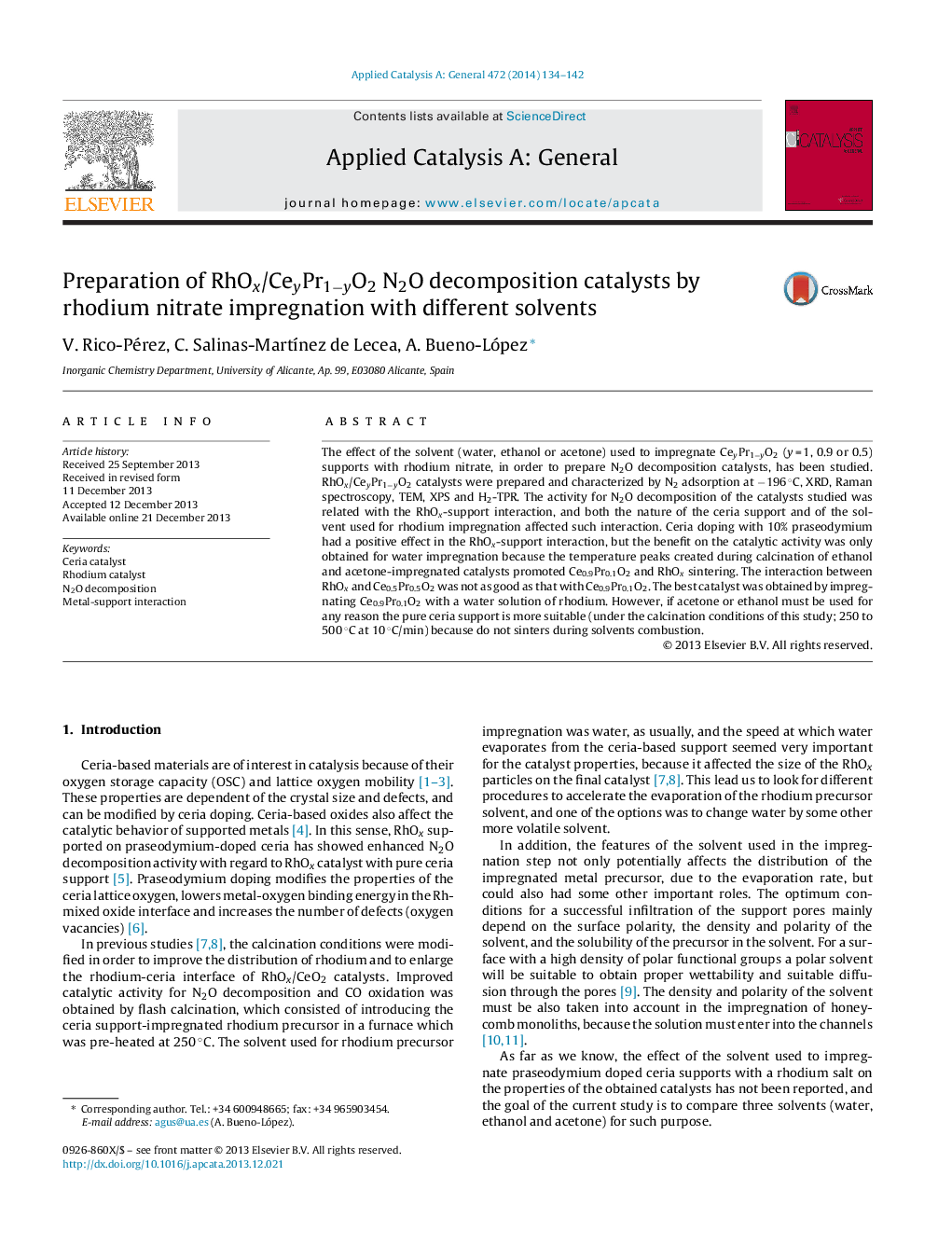| Article ID | Journal | Published Year | Pages | File Type |
|---|---|---|---|---|
| 39797 | Applied Catalysis A: General | 2014 | 9 Pages |
•Ceria doping with 10% Pr had a positive effect on RhOx-support interaction.•The benefit on the catalytic activity was only obtained for water impregnation.•Ethanol and acetone promoted Ce0.9Pr0.1O2 and RhOx sintering.•The RhOx and Ce0.5Pr0.5O2 interaction was not as good as that with Ce0.9Pr0.1O2.
The effect of the solvent (water, ethanol or acetone) used to impregnate CeyPr1−yO2 (y = 1, 0.9 or 0.5) supports with rhodium nitrate, in order to prepare N2O decomposition catalysts, has been studied. RhOx/CeyPr1−yO2 catalysts were prepared and characterized by N2 adsorption at −196 °C, XRD, Raman spectroscopy, TEM, XPS and H2-TPR. The activity for N2O decomposition of the catalysts studied was related with the RhOx-support interaction, and both the nature of the ceria support and of the solvent used for rhodium impregnation affected such interaction. Ceria doping with 10% praseodymium had a positive effect in the RhOx-support interaction, but the benefit on the catalytic activity was only obtained for water impregnation because the temperature peaks created during calcination of ethanol and acetone-impregnated catalysts promoted Ce0.9Pr0.1O2 and RhOx sintering. The interaction between RhOx and Ce0.5Pr0.5O2 was not as good as that with Ce0.9Pr0.1O2. The best catalyst was obtained by impregnating Ce0.9Pr0.1O2 with a water solution of rhodium. However, if acetone or ethanol must be used for any reason the pure ceria support is more suitable (under the calcination conditions of this study; 250 to 500 °C at 10 °C/min) because do not sinters during solvents combustion.
Graphical abstractFigure optionsDownload full-size imageDownload high-quality image (145 K)Download as PowerPoint slide
